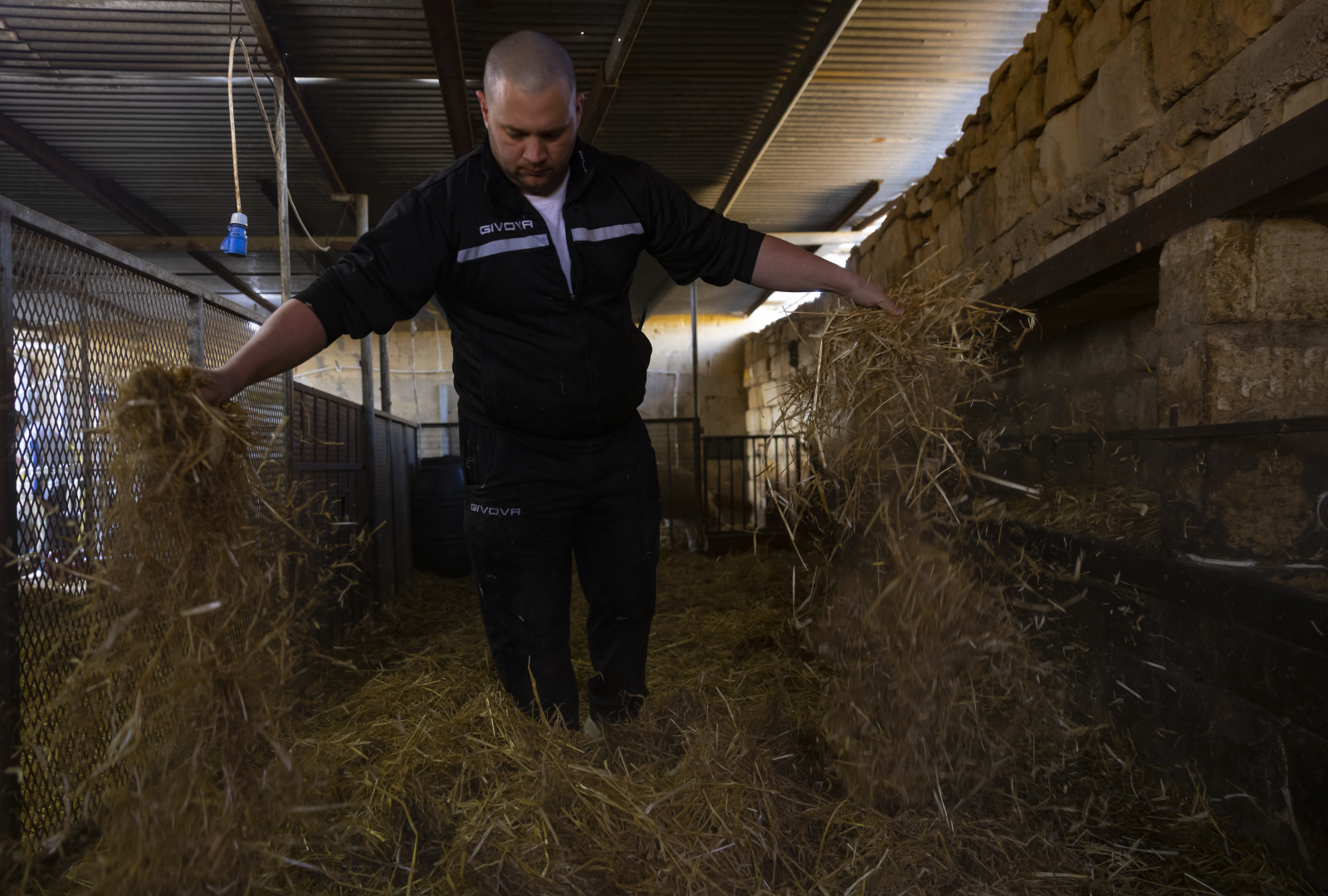Walking in the rural streets of Haz- Zebbug (Malta) at 08:00 in the morning thinking it was a pretty early hour to start a Sunday morning, I arrived at ‘Tal-Karmnu Farms’. There I was warmly greeted by Joseph, and Paul who are used to starting their days at around 04:00 a.m.
“Minn dejjem hawn ahna.” Exclaimed the brothers when asked about how long the family had been on the farm, for the past three generations to be exact. The late father started his life here, born on this very farm, where he cultivated the land and kept chickens, goats, and sheep among other animals.
Now it is his three sons; Joseph taking care of the sheep, Pawlu working the fields, and Leli overseeing the shop, along with Jessica and Elaine who make the cheese in the kitchen and sell the produce in the shop. It has not always been like this though, a while back the farm was falling apart, and Joseph was becoming increasingly discouraged with restricting EU regulations. One day, completely disheartened he went to his brothers telling them he was ready to give up his herd.
However the brothers used this setback as a turning point and decided that they will not only set up the farm but they will make an example of it.
Today the ‘Tal-Karmnu Farms’ has 100 sheep, a catering standard kitchen, and a front shop. “Ahna iffokajnha fuq in-naghag ghax nhobbuhom.”
The sheep are milked every morning, then the fresh milk is used to make ‘gbejniet friski’, ‘irkotta’, ice cream, along with other products like ‘ravjul’, pies, sweets, and ‘kannoli’. While talking with the family there was a shared sense of pride in the work and care that they put in producing a genuine product. The brothers sell their produce exclusively from their own shop in Haz- Zebbug, fresh everyday, what is not sold on the day is then pickled to make ‘gbejniet niexfa’.
It is directly at the farm gate that they want to engage with the consumer, in this manner the consumer can truly appreciate the quality of the produce.
Between ‘l-Imnarja’ and ‘l-Indipendenza’ the shop is closed because there isn’t fresh sheep milk. During summer the sheep become pregnant and need the milk to feed their lambs. It is important that the animal is also allowed to rest and take care of her little ones, they tell me. Though I am assured that this doesn’t mean that their work stops, there’s always work to do!
Farming is already tough in its nature, however when Malta joined the EU there were added challenges to the local producers, who now were competing with European farmers, and had more meticulous standards to uphold. However, benefiting from EU funding has been a way to offset these challenges. Through EU funding directed to Young Farmers, the brothers, with the help of local veterinarians, were able to completely refurbish and modernise the farm complying with EU standards in their dairy production. Though the process is discouragingly unstructured, and slow for those who have to start their days at 04:00 a.m.
When looking at the bigger picture, Leli shared the need there is for elected officials to constructively promote sustainable farming towards local food security. Given Malta’s size, climate and growing population it is essential for Malta’s financial stability, especially during times of crisis.
As the front doors were opened the first batch of ‘parrocciani’ arrived, others picking up their orders, and some curiously looking at the sheep, Leli rushed to greet the customers, Jessica took orders behind the counter, and Joseph showed the children around the farm. I immediately understood when earlier they told me “ahna katina”, we make it work together.
